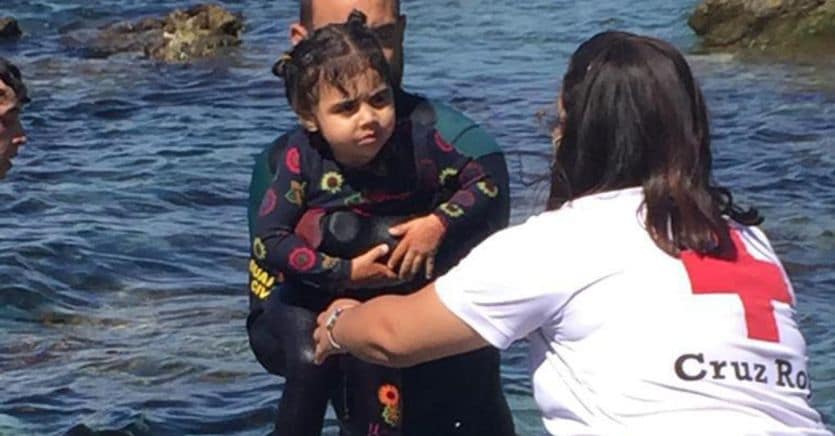Tension rises over the migration crisis on the borders between Spain and North Africa. On Wednesday 19 May, Spain deployed the army in Ceuta, a Spanish enclave in Morocco, after the arrival in just two days of at least 8,000 migrants, including women and children, sending back about half.
Premier Sánchez to Ceuta and Melilla
On Tuesday evening, Spanish Prime Minister Pedro Sánchez, accompanied by Interior Minister Fernando Grande-Marlaska, personally visited Melilla, a Spanish enclave in Morocco, for an emergency visit, confirming that the Iberian country is facing a migratory crisis without precedents along the borders with the North African one.
Loading…
The prime minister’s visit to this city comes after the one to the Ceuta enclave. There, Sánchez met with the president of Ceuta, Juan Luis Vivas, and other authorities.
According to local media reports, even in Melilla, as already happened in Ceuta, Spanish Prime Minister Pedro Sánchez was greeted by boos and insults.
Minister Morocco, Spain respect our rights
Spain “knew that the price of wanting to underestimate Morocco is very high” and must “respect the rights” of the kingdom which yesterday called its ambassador to Madrid, Karima Benyaich, “for consultations”. This is the message from the Moroccan Minister of State for Human Rights and Relations with Parliament, Mustapha Ramid, who in the last few hours has accused Spain of not respecting the principle of “good neighborliness” for having “welcomed” the leader of the Polisario Front, Brahim Ghali, and to have “preferred” “relations with Polisario and his mentor, Algeria”, to those with the kingdom in the midst of tensions after the mass arrival of migrants in Ceuta and controversies for the presence of Brahim Ghali on Spanish territory. “The welcome by Spain of the leader of the Polisario separatist militias, under a false identity, without taking into account the good neighborly relations that require coordination and consultation, or at least worrying about informing Morocco, is an irresponsible and absolutely unacceptable act” Ramid wrote on his Facebook profile. “What would Spain have lost – he insisted – if it had consulted with Morocco on welcoming this individual? Why hasn’t Spain made known the presence on its territory of the subject in question with his true identity? ”.
